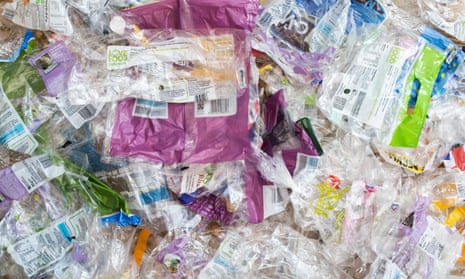By now, we all know the horrors of plastic. The way it hangs around without biodegrading for centuries, the way it’s clogging the stomachs of birds, how it creates islands in the ocean for marine life to get stuck in, how it pollutes our riverways and motorways as non-biodegradable rubbish.
Yet it’s everywhere. If you want a takeaway coffee, there’s plastic lining in about 99% of disposable cups. If you want a sandwich at a deli, it’s more than likely going to be wrapped in plastic. Even when you’re doing your very best to be healthy, a two litre milk comes in a plastic container and most major supermarkets produce is wrapped or bagged in plastic.
Following hot on the heels of the ABC’s illuminating tv show WarOnWaste, it’s time for Plastic Free July, an initiative which asks people to stay away from single use plastic – the plastic you get to gather your fruits and vegetables, the plastic bags you use to transport your shopping home, the soft drink bottles, the toilet paper wrapped in plastic. When you look around shops, and even the items in your home, you’ll find single use plastic is seemingly limitless.
So what to do? How do you go plastic free without having to buy everything in overpriced organic stores? It also seems when you start out that the equipment (stainless steel bottles and containers) you need to go plastic free is expensive.
That’s not the case. I’m by no means a perfect plastic free person. In fact, junk food kept me consuming plastic for a lot longer than it should have. That said, I’m trying to be a frugal person, so I’ve learned a few tricks that might help you.
Stop eating junk food
So we all know junk food is the pits for our health, but it’s also the pits for the environment. How many Mars and Snickers bars have you seen wrapped in recyclable paper? Not only do the wrappers break down into tiny bits of plastic that can easily get lodged in the guts of a perfectly healthy sea bird, but just take a look along your local highway and what’s the litter you see? Junk food wrappers. Plus they’re expensive. Turf junk food.
Take your own cutlery and tea towels
Often when we’re eating takeaway, we’re given plastic knives, forks and spoons. And, be honest, how often do you use them again? Approximately never? Take the knife, fork and spoon that doesn’t match the rest of your home set and wrap it in a tea towel. And, if you don’t have a spare set, pop into your local op shop. And there you have it, cutlery and a serviette harming nothing.
Figure out what to do with leftovers
As you probably know, food waste is one of the environment’s worst offenders. When trapped inside a plastic bag and put into landfill, it releases methane into the atmosphere. To save money, make sure you always have a glass container with you (an old instant coffee jar or the like) and take the food home with you for dinner or breakfast the next morning.
Use your own cup
Do we really need to go through this again? The coffee cup thing? Disposable coffee cups are environmental devils, with a thin film of plastic on the inside. Occasionally you’ll see businesses with fully biodegradable cups, but do you have time to shred it and add it to your compost? I don’t. So, if you can’t afford a reusable cup and you must have coffee, drink it inside, or bring your own mug and ask for it to be filled just enough so you can walk with it. Or don’t have a coffee.
Make your own yoghurt
My favourite yoghurt is $6.99 for half a litre, and although it’s in a plastic container that’s not technically single-use plastic, I still feel guilty buying it. So I started making my own yoghurt. I buy two litres of recyclable glass-bottled milk for $3.50 a bottle, and make almost a litre and a half of yoghurt. The yoghurt is delicious and I save loads of money. If you wanted to use paper-carton milk, you’d save even more.
Hunt through your cupboards
There are so many things you have in your cupboards that will negate having to use gladwrap and plastic bags. If you’re adept with a needle or sewing machine, turn your old tea towels into vegetable bags. If you’re not, use your old pillow cases. Look through the cupboards and find every empty jar or empty container and put it to use – packing the kids lunches or making your own cheese or yogurt, not contributing to food waste by chucking out that little bit of soup or left overs.
You can do it! We all can do it!

Comments (…)
Sign in or create your Guardian account to join the discussion